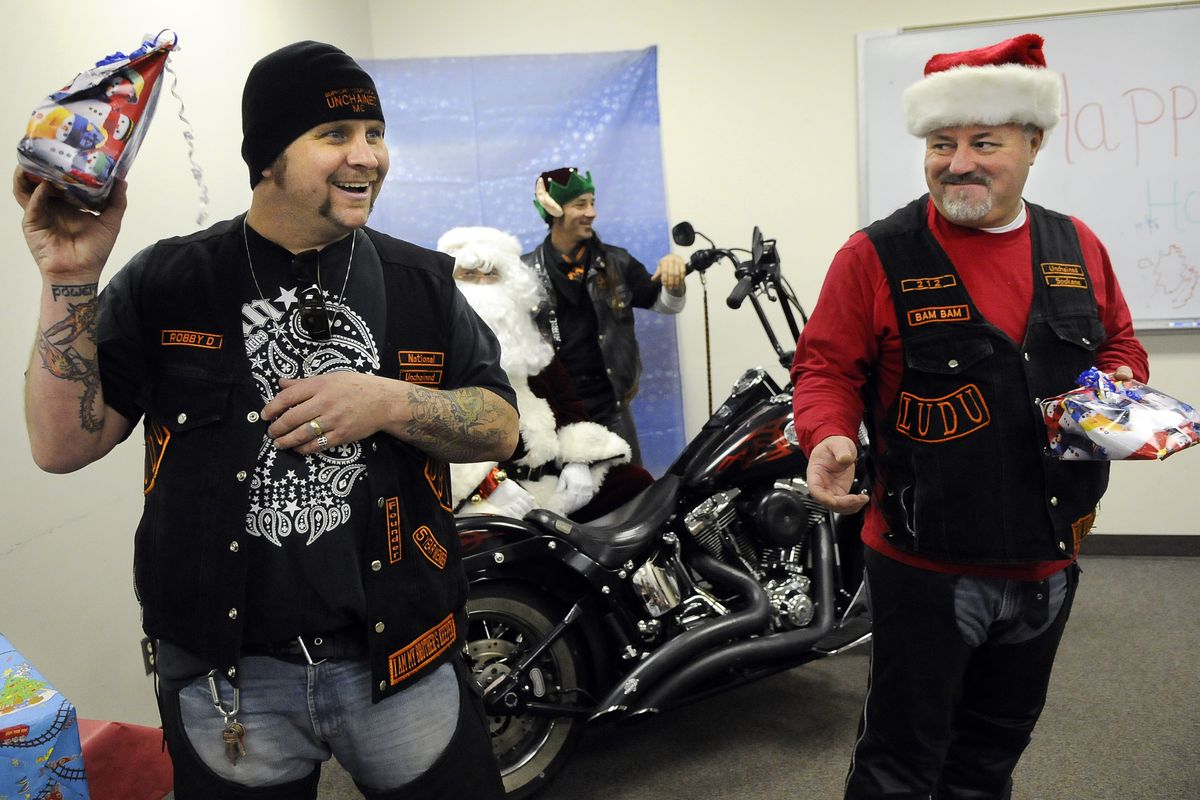Bikers bring gifts to Hillyard Center

Santa came to Hillyard on Friday – on a Harley, of course.
The Institute for Extended Learning’s Hillyard Center welcomed the jolly old guy and all his biker buddies for a Christmas party with the families of IEL students.
The Spokane chapter of the Unchained Brotherhood, a statewide clean-and-sober motorcycle club, brought presents for 57 kids and a message of hope for their parents, many of whom are on WorkFirst, the Washington family assistance program.
“If you tell the truth and do the right thing, everything else will fall into place,” said Sean Brown, of Coeur d’Alene, a former substance abuser and member of the club.
In fact, being a recovered or recovering addict is a requirement for membership in the Unchained Brotherhood, said its sergeant-at-arms, Robert Deitrick, a 42-year-old former addict and felon who said he spent most of his life entering or leaving prison until 1991.
Now he rides, helps his club raise money for charity, and speaks out against the drugs that nearly did him in.
Earlier this year, the club raised money for associate member John Englehart after he and his wife were severely injured in a motorcycle accident in Oregon.
On Friday, Englehart played Santa, posing for pictures with children on the seat of a Harley-Davidson in the Hillyard Center.
Among the kids visiting Santa were Angel and Nevaeh, the daughters of Crystal Jones, a student working toward her general equivalency diploma at IEL, part of the Community Colleges of Spokane.
Jones said she would take her GED tests soon thanks to the program, which also teaches her life skills to make her more employable.
More than 100 adult students each quarter take classes at the Hillyard Center, said program coordinator Dawn Chavez.
Chavez said she has seen a huge increase in the number of people turning to IEL for help in the economic downturn.
“Some need skills to become marketable, some are transitioning to college, but most are pursuing their GEDs,” Chavez said. “We do whatever we can to stabilize these families.”
That might mean finding them appropriate support services, medical or mental health care, or drug and alcohol counseling, Chavez said – “whatever it takes so they can complete their educational goals and become self-sufficient.”